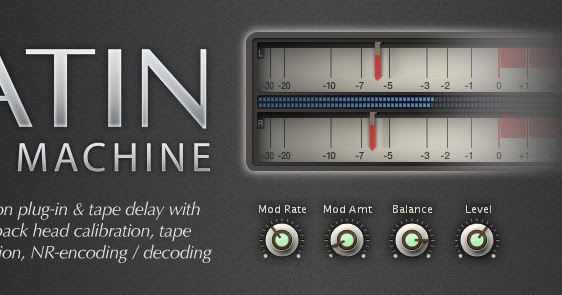
The Mastering Suite comprises Ultimate-D, StereoTools, MaxLimit and MultiLimit. Each one comes in VST, RTAS and AU plug-in formats for Mac and PC. MaxLimit The big draw of the Mastering Suite is bound to be its pair of limiters, so we'll start with the MaxLimit program maximiser. This offers variable release time, down to 1ms, and an automatic mode, where the timing is dependent on the audio material. The Smooth knob isn't a typical limiter parameter - low settings are said to be better for all-out volume maximisation, whereas turning it up aids transparency. Finally, there's a clipping stage (with digital and analogue 'flavours') for increasing the level at the expense of added distortion. A limiter lives or dies by its quality of sound, and our first problem with MaxLimit is that, when pushed, the sound gets louder, as expected, but becomes too smooth and rounded, and you can hear the limiter working.
It doesn't distort, but it never achieves the kind of weight, bounce or punch that the likes of PSP Xenon, Voxengo Elephant or Waves L3 Ultramaximizer can manage. However, the very thing that reduces MaxLimit's efficacy for mastering makes it superb at accentuating things like reverb and delay tails when used on mix elements. Funnily enough, we got more mileage out of MaxLimit as a mixing tool.
We have to say that we're not keen on the metering in MaxLimit. For example, the gain reduction meter goes all the way down to -33dB or so, but when mastering, it's common to apply far less - an average of around 3dB of attenuation is normal. Therefore, the useful range of the meter is tiny - an option to zoom in on the 0-10dB range would definitely help here. What's more, with fast release times, the reduction meter is 'soft' when compared to other limiters, as though it's too slow to react to the changes. You have to push the limiter harder to see the same kind of meter action as with competing limiters, and this leads to too much gain reduction if you go by the meters, and not enough meter movement when set correctly by ear.
MultiLimit MultiLimit is a more complex limiter that splits the signal into up to five frequency bands, applies limiting to each, then routes the lot through a broadband limiter. This enables you to apply more or less limiting to the bass, mid or treble, or even accentuate specific instruments. MultiLimit has similar global controls to MaxLimit, as well as an optional soft knee for more gradual limiting. For each band, you can define the frequency boundaries, change the amount of limiting, set the release time as a percentage of the global release, and adjust the gain.
Nov 27, 2008 cm133 - Sonalksis Mastering. MaxLimit and MultiLimit. Each one comes in VST. Info: MultiLimit, £290; MaxLimit, £160; Stereo Tools, £130. Stereo Tool is an audio processor for FM, AM, DAB, TV, streaming and home use for Windows, Linux and Mac OS X. Note: The VST plugin version of Stereo Tool is not free. Stand alone version Stand alone 64 bit. To download an older version of the software, add _.
Versions App Keygen. You can solo each band to hear it in isolation, but you can't bypass it whilst doing this, which would've been useful for comparison. As with any multiband dynamics processor, MultiLimit can be a great tool when used wisely, but may do more harm than good in the wrong hands, so it's not one for the novice engineer. It works well enough and has the basics covered, but ultimately suffers from the same limitations as MaxLimit: it's not the most transparent processor around and the metering isn't great. In use, we often achieved the most satisfactory results from MultiLimit with the meters barely showing any action. Furthermore, it's annoying that the broadband limiter can't simply be disabled, though it seems that its action can be circumvented by setting a high global threshold and/or reducing the gain per band. This enables you to limit just the bass, for example, with the other bands untouched (incidentally, this technique works very well with MultiLimit). Ultimate-D and StereoTools Ultimate-D is a tool for converting audio to lower bit depths; for example, when creating audio for compact disc, you'll dither down to 16-bit.